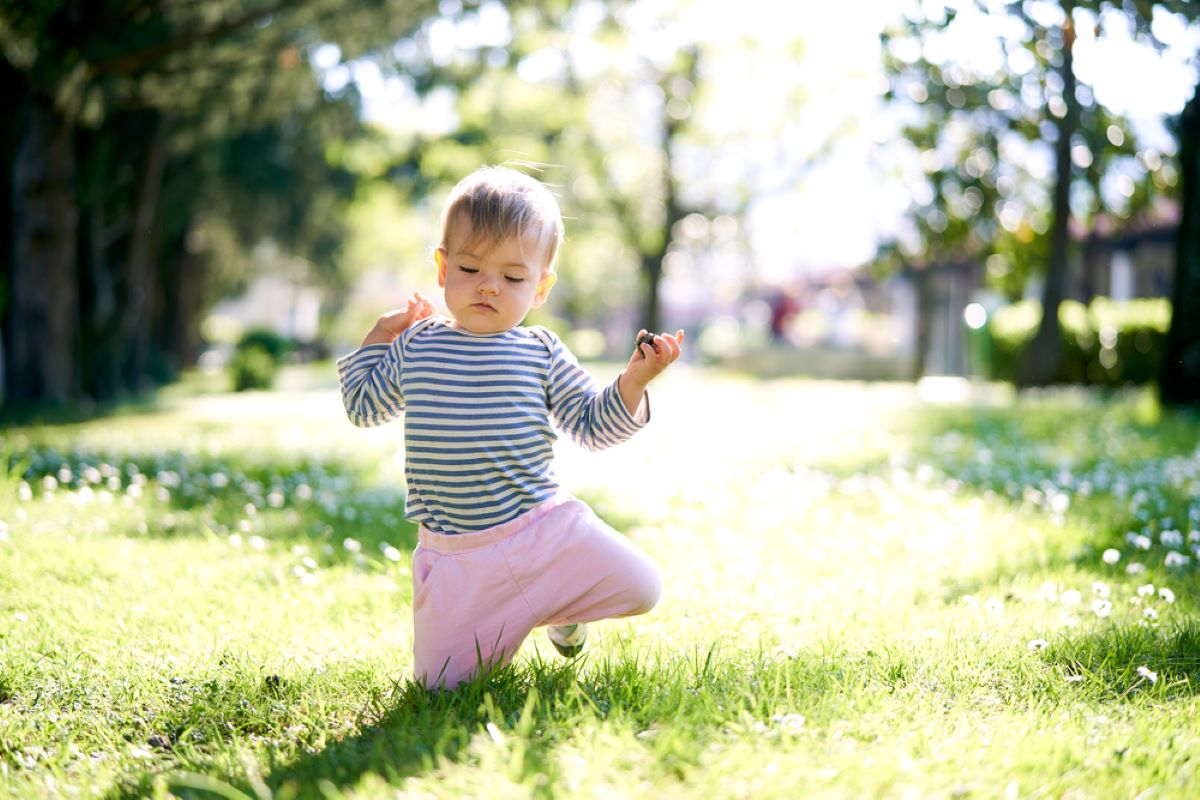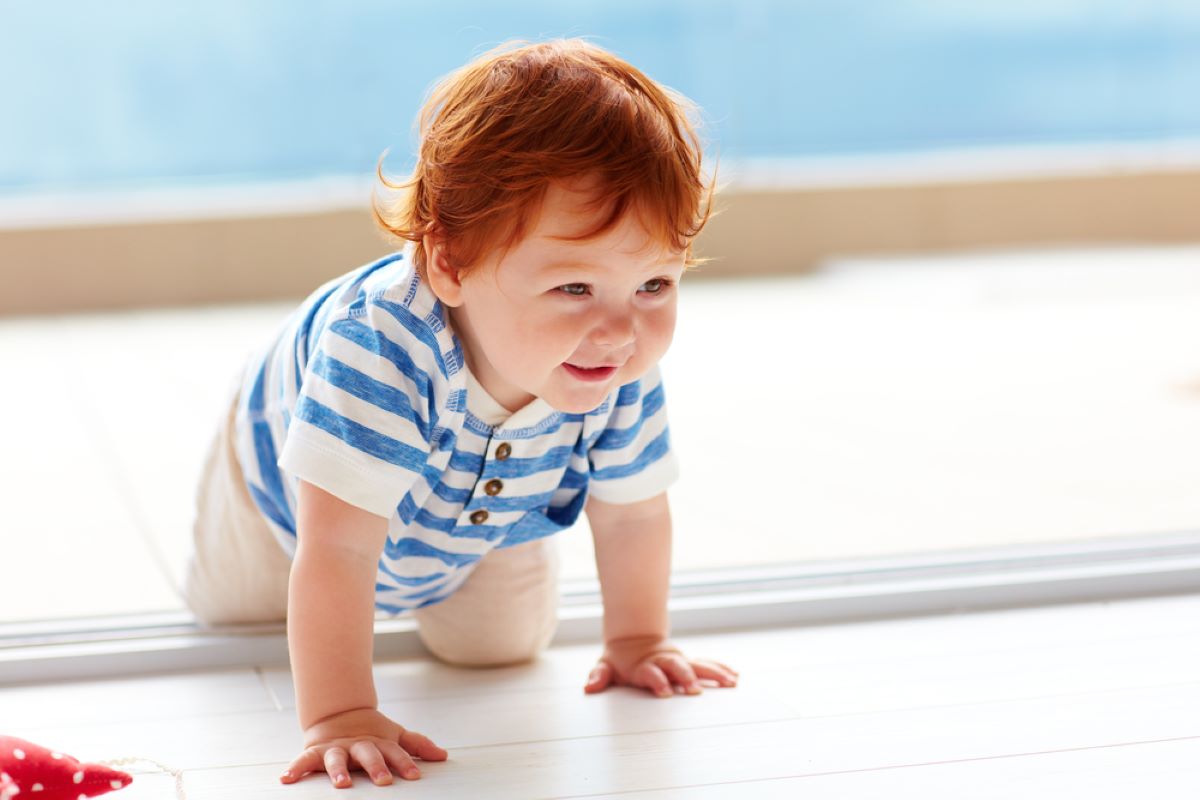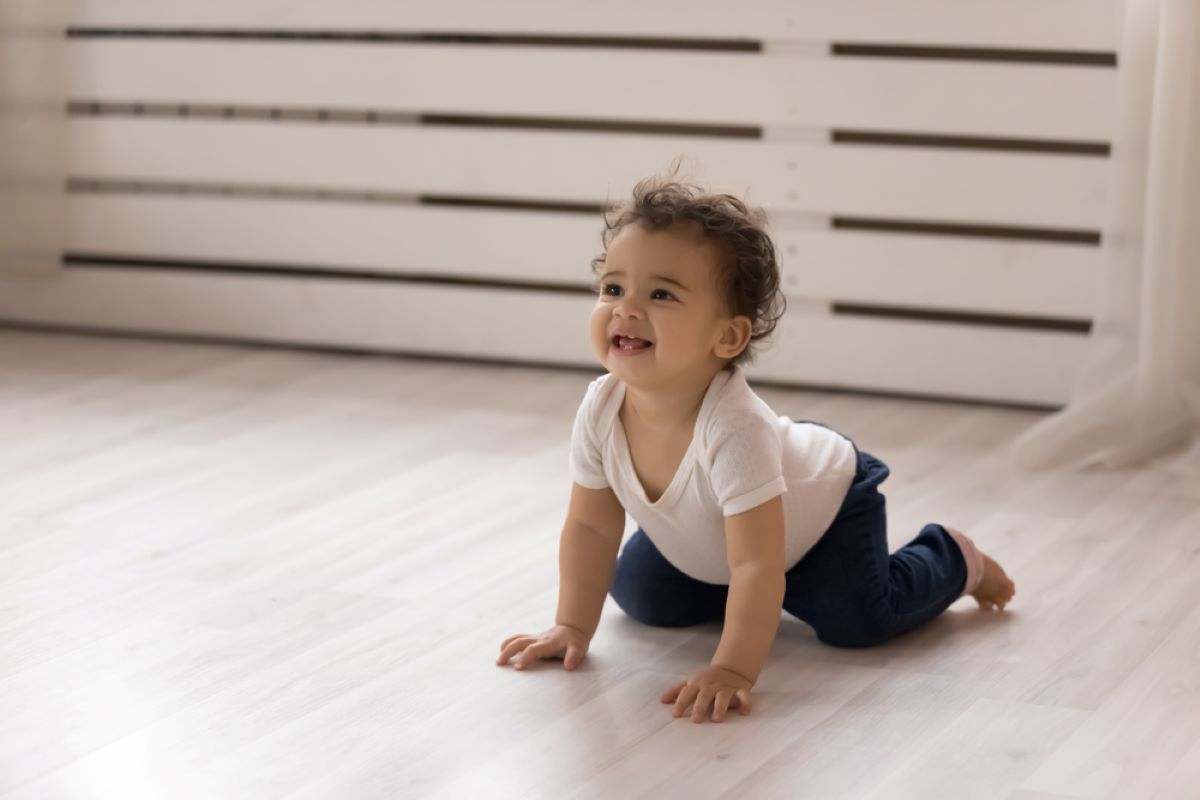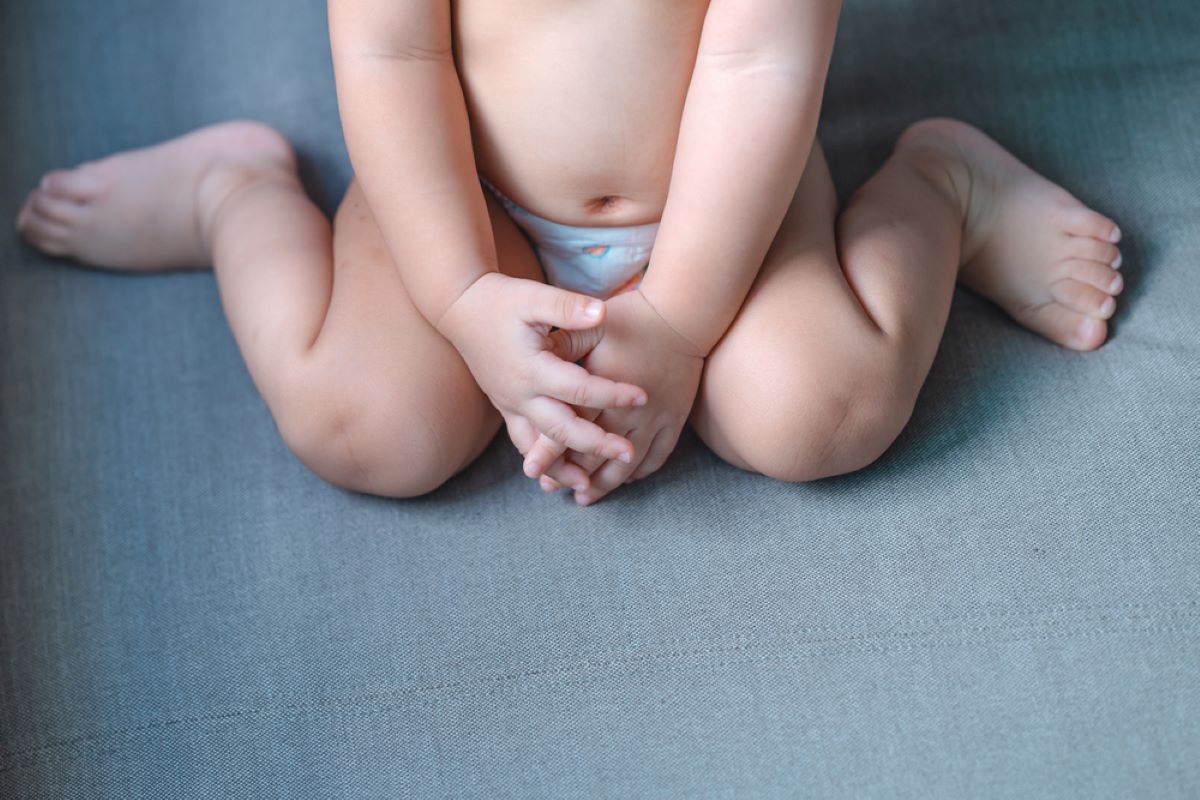No matter how beautiful it is to be a mother, it brings plenty of challenges, and you spend quite a lot of time worrying about your little one. You overthink everything she does, including your baby walking on her knees. Is this kind of behavior normal, or should you be worried?
You can’t expect your baby to start walking and running around your home like she’s done it before. She’s just learning about her body and the world around her. A couple of months ago, she probably wasn’t even aware that she had legs at all, let alone knowing how to use them!
Seeing your baby learn new things is the most exciting experience for every parent. Each milestone she reaches is a magical moment you remember forever. However, not all babies will reach a certain milestone at the same time, and it’s important not to compare your experiences with those of other moms.
Still, if you’re worried that there’s something unusual about your baby’s development, don’t ignore that gut feeling. No matter what it is or how small it might be, talk to your pediatrician. The sooner you find the issue (if there is one), the easier it will be to resolve it.
A baby walking on knees isn’t always something you should worry about. Sometimes, it’s simply something she does as she transitions from crawling to walking. However, if it’s something you’re scared about, I’m here to help you understand this behavior before you talk to her pediatrician.
Why is my baby walking on her knees?

If you’ve noticed your baby walking on her knees, you’re probably wondering why she’s doing it. Don’t go straight into panic mode, mama. That will only create more issues. Let your baby be for a bit, and monitor her behavior and development.
Our little ones are born with instincts that might make them walk on their knees first before they stand on their feet. It’s just something that helps them keep their balance during this period of transition. Walking straight on your feet is pretty scary if crawling is the only way you’ve gotten around your whole life!
I’m sure it’s super adorable to watch, and quite comical, too. Enjoy these moments before she starts running around your home – you’re going to miss them.
That being said, if your baby continues to walk on her knees and can’t seem to transition to walking on her feet, it might be a sign of something more serious.
If your child is more than two years old and she’s still using her knees to walk it could be a sign of underlying orthopedic issues. Depending on what they may be, walking on her feet can be quite painful and uncomfortable, which is why she stays on her knees.
Most of the babies grow out of their orthopedic issues, such as flat feet or bow legs. However, if they stop your baby from walking, pediatric intervention is inevitable.
Will this become a long-term problem?

It’s best to address this issue as soon as possible to avoid any possible long-term effects. If not treated in time, it could affect your little one’s posture as a result of constant arching of her lower back. On top of that, walking on knees will prevent proper development of her leg and core strength.
When babies start walking on their feet, it helps them develop their motor skills, as well. Over time, they learn to jump, climb, run, walk up and down stairs, and more. When they’re constantly on their knees, it might hinder the progression of their motor skills, or halt them completely.
Possible solutions for knee walking
Although it’s pretty amusing seeing your baby walking on her knees, it’s best not to ignore this type of behavior if it goes on for a longer period of time. If she doesn’t seem to progress from this stage, it’s time for an intervention.
Talking to her pediatrician is the first thing to do. However, before you do that, it’s important to know some other things you can do to help your little one stand on her feet.
1. Deal with possible orthopedics issues
If it turns out that your baby is walking on her knees because of an underlying orthopedic issue, you shouldn’t wait for her to grow out of it. If you wait, it could lead to bigger issues that will become harder and harder to fix as she grows, and her body gets used to this action.
If your baby finds it painful or uncomfortable to stand on her feet, it’s a strong sign that she’s dealing with an orthopedic problem that needs to be addressed. Although some orthopedic issues can be resolved on their own, they’re often a sign of some other underlying medical concerns.
It’s impossible for us to know these things on our own. Talking to a professional will help you find the exact reason behind your baby’s knee-walking, and prescribe the right physical therapy to help her move on from this stage of her development.
2. Physical therapy

If it turns out that your baby needs physical therapy to start walking on her feet, don’t worry. Many parents deal with this, and their babies grow up into wonderful, healthy children who jump, climb, and run around their homes like any other kid.
However, don’t try to solve this on your own. Your doctor will know best what kind of physical therapy your little one needs, depending on her individual needs. The wrong kind of therapy and exercises can do more harm than good, so make sure you consult a professional.
What you can do to prevent these issues is to give your baby enough tummy time regularly, and make sure she has enough space to move freely. Don’t constantly restrict her movement in slings and swaddles, but rather let her body move. That’s the best way for it to properly develop.
Together with physical therapy, you can try some games and exercises that will encourage your baby to walk on her feet instead of her knees. Put her on her back, sing a song to her, take her legs and pretend she’s riding a bike. It’s a fun exercise that will feel like playtime for your baby.
You can even try putting your baby’s toy out of her reach and encouraging her to stand up and get it. Although she might be annoyed by it at first, it might encourage her to get up on her feet.
3. Give your baby time and let her explore

Sometimes, the best thing you can do is give your bub some time and not rush her. Some babies simply need more time and courage to start using their feet, and there’s absolutely nothing wrong with that. Your baby is unique, and your experiences will be unique, too.
Walking is far from easy, and perfecting it takes time. At first, your baby will overthink her every movement, and she may even be scared of falling, too! Praise her when she’s done well and encourage her to try again when she falls. Don’t stress about it too much, and try to enjoy watching your baby learn.
Restrict her time in a stroller or a baby carrier. Although it may be easier for you at times, you’re not giving her enough opportunities to practice learning how to walk. If she’s never on the floor, she won’t have a chance to build up leg strength.
4. Talk to your pediatrician
Don’t wait before it’s too late to talk to your pediatrician. If you feel your baby is taking too long to reach a certain milestone, address it at your next appointment. They’ll examine your little one and be the ones to confirm if there are any issues.
If there aren’t, you’ll feel a lot better knowing there’s nothing wrong with your little one, and you’ll be able to give your baby time to explore and learn at her own pace.
Here are some walking milestones your baby should reach:
- take some steps on her own by the time she’s 15 months old;
- walk and climb without holding onto things by the time she’s 18 months old;
- walk up steps and run by the time she’s 2 years old.
When can I expect my baby to start walking?

All babies are unique. Some might start walking when they’re 10 months old, and some might take up to 18 months. On average, babies start walking when they’re about 12 months old. However, they might take their first steps even earlier. Here are some signs your baby might start walking soon:
- She’s using your couch or a table to stand up.
- She’s making her first steps while holding onto something.
- She’s able to stand without support.
- She’s able to walk while holding your hands.
- She’s holding onto things with only one hand.
